May/June 2012
Back to Project Contents and Introduction
Truly
dreadful weather continued to dog the work through the first half of
May, this spring we have had two or three weeks when we have not been
able to get down to sites we were working on at all. However in the odd
breaks in the weather work was completed on sluice 4: plan and elevation
and we headed to the final stop on our sluice tour - sluice 5 and the
sheep wash.
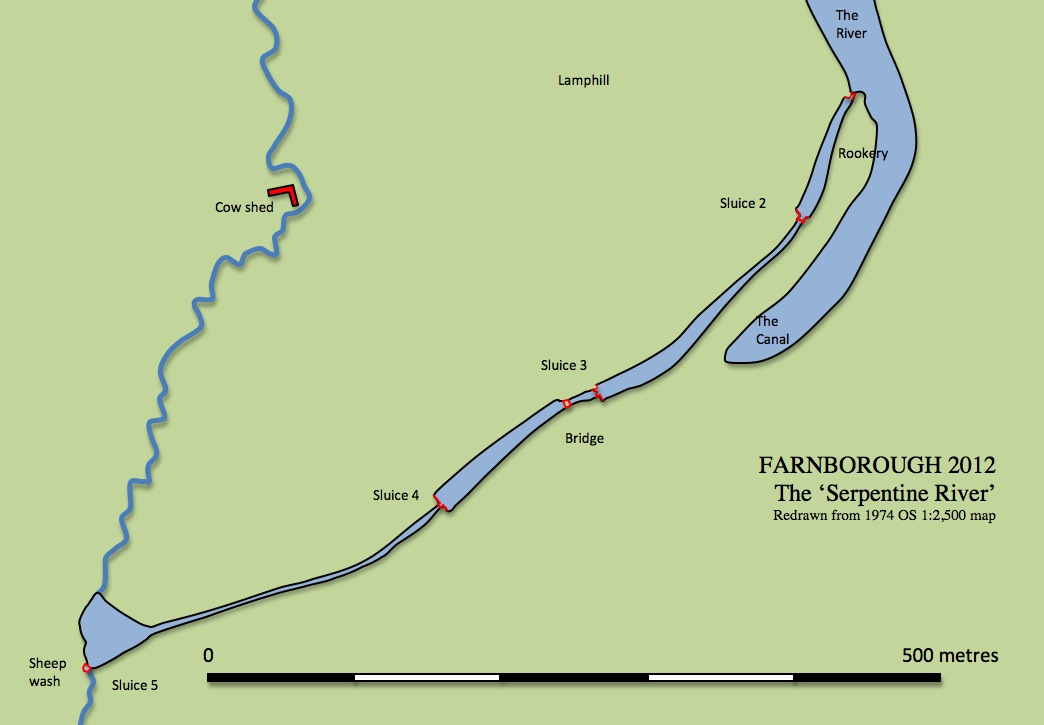
Again we seem to have a feature which originated in the mid-eighteenth century and was then repaired, modified and converted. The other strand to our investigations of the whole 'Serpentine River' arrangement was an epic piece of leveling when with the help of Peter Braybook we worked our way along its whole length reading off the levels then, as you can se below, plotting it all to scale so we can get some of idea of how the system worked. Although none of the original timber gates survived we were able to position them by assuming that the concrete replacements at sluices 4 and 5 were of a similar height which then also matched the base of the blue brick facings on the upstream elevation of the piers.
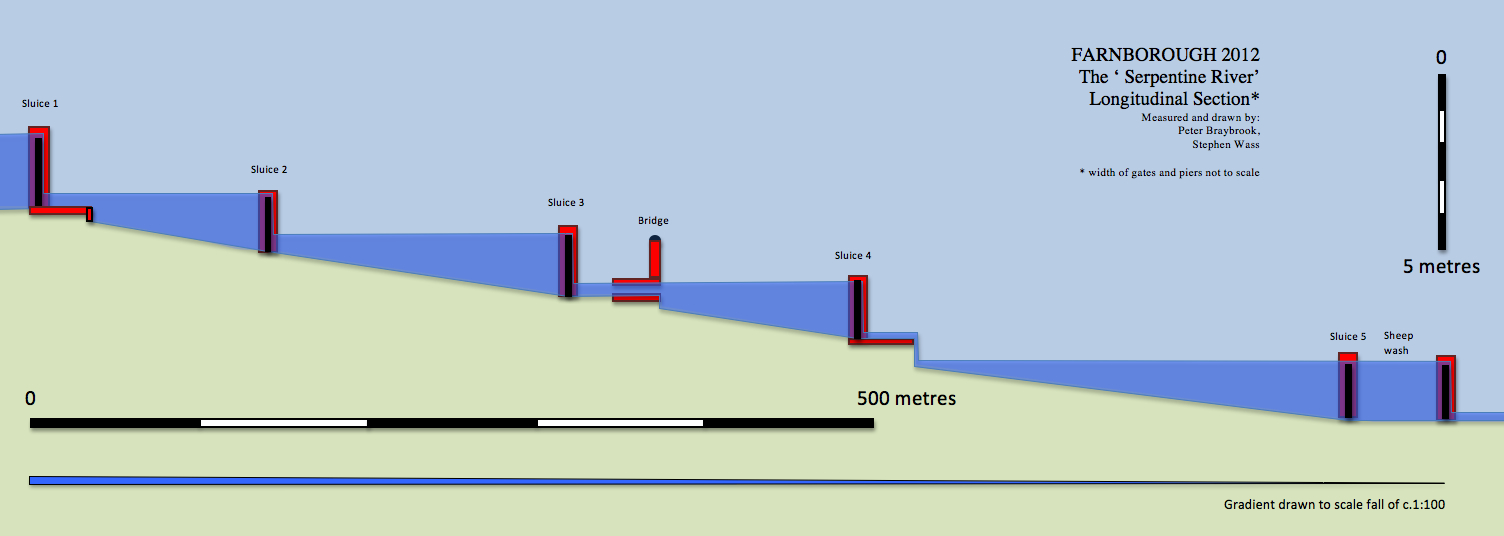
A couple of preliminary thoughts. It looks as if the cascade below sluice 4 was a particular design feature that one would expect to be able to view as the water level generated by sluice 5 comes up to its base. The arrangement with the two conduits under the bridge looks a little odd. Today there is a drop of just under half a metre on the outfall but if it is an original feature then in the eighteenth century these would be under water and the track way would have been just above water level. OK maybe that was the idea.
The fifth and final (hopefully) sluice proved the most complex of all:
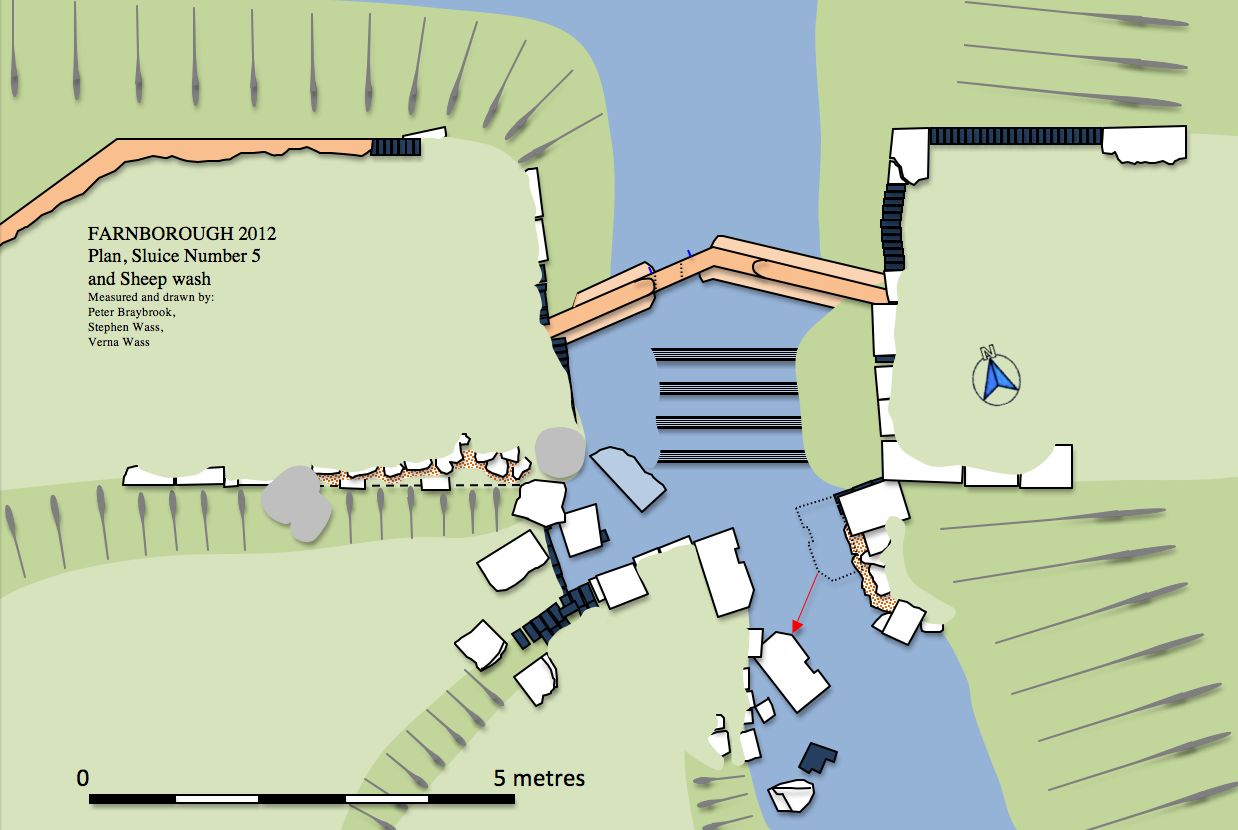
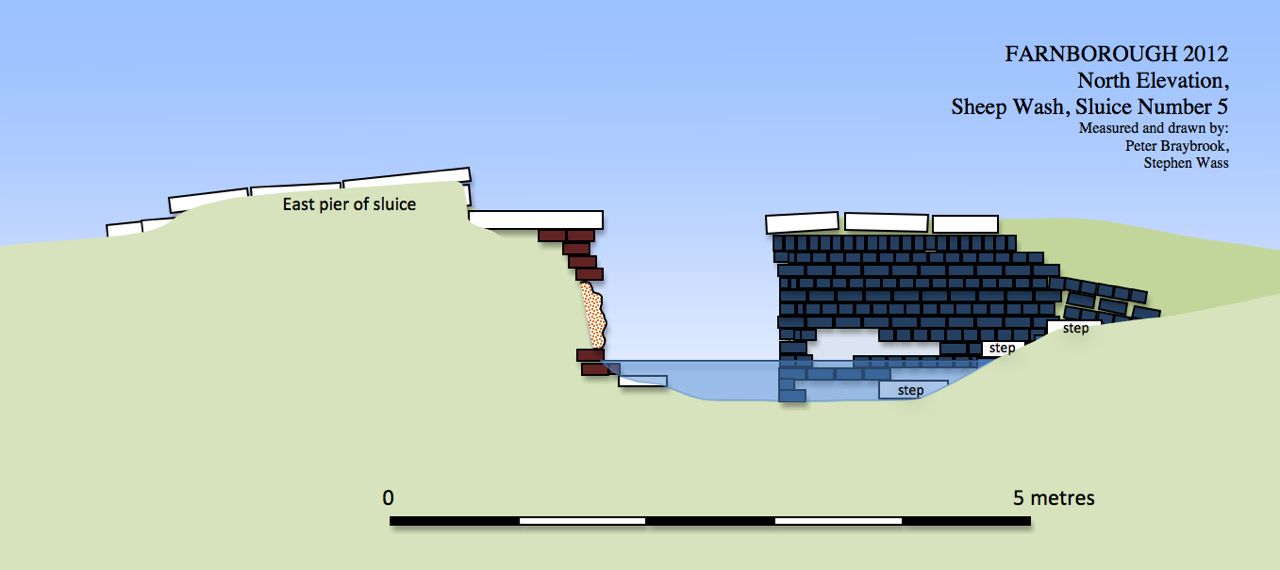
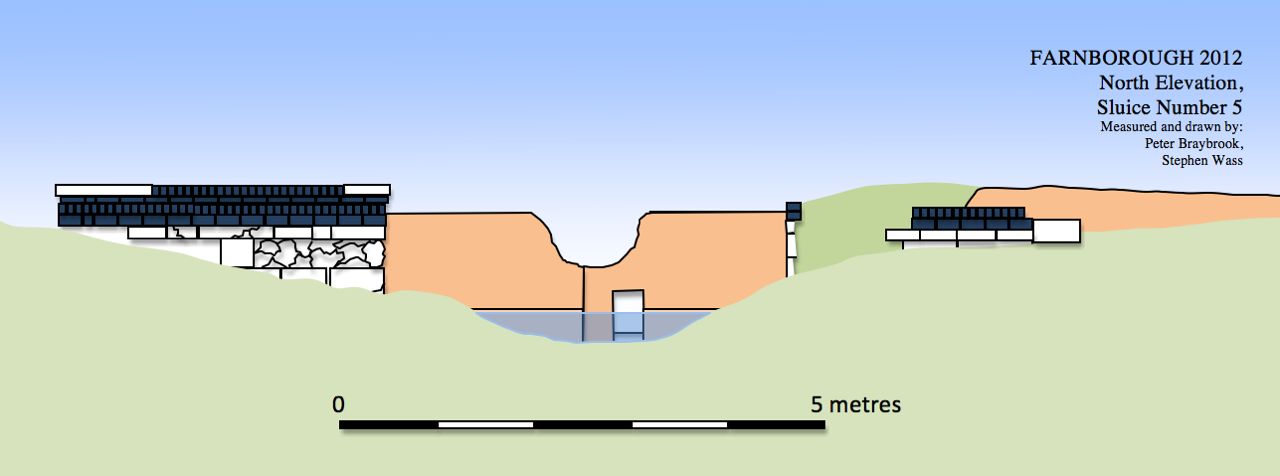
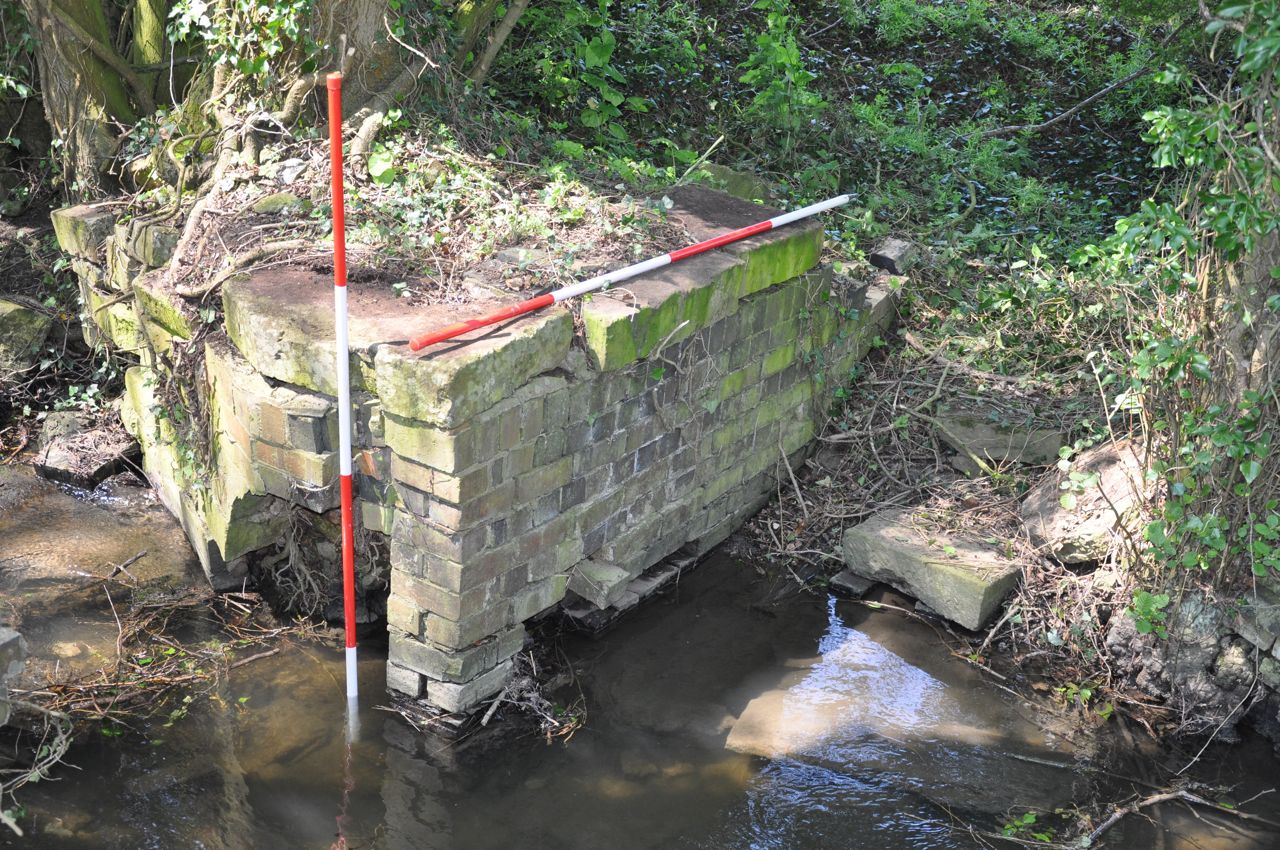
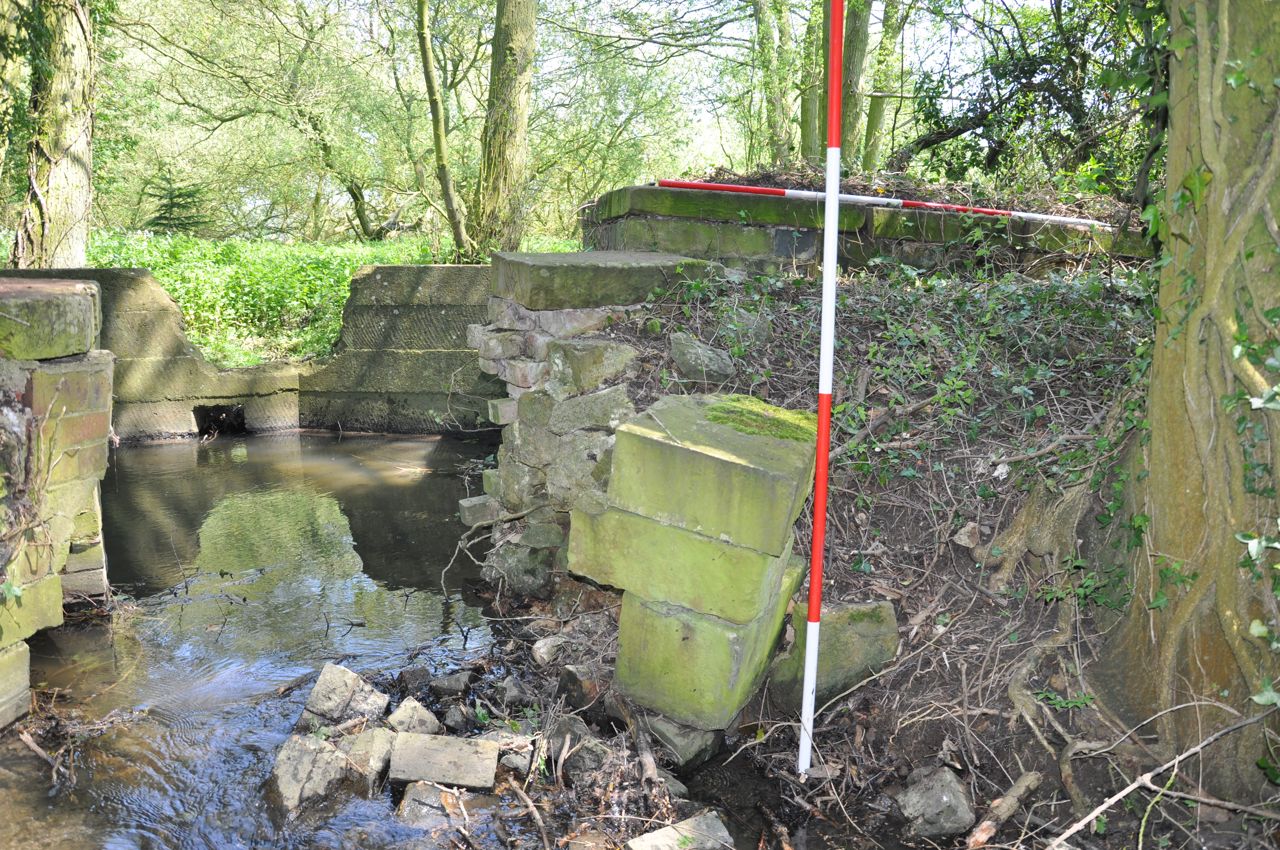
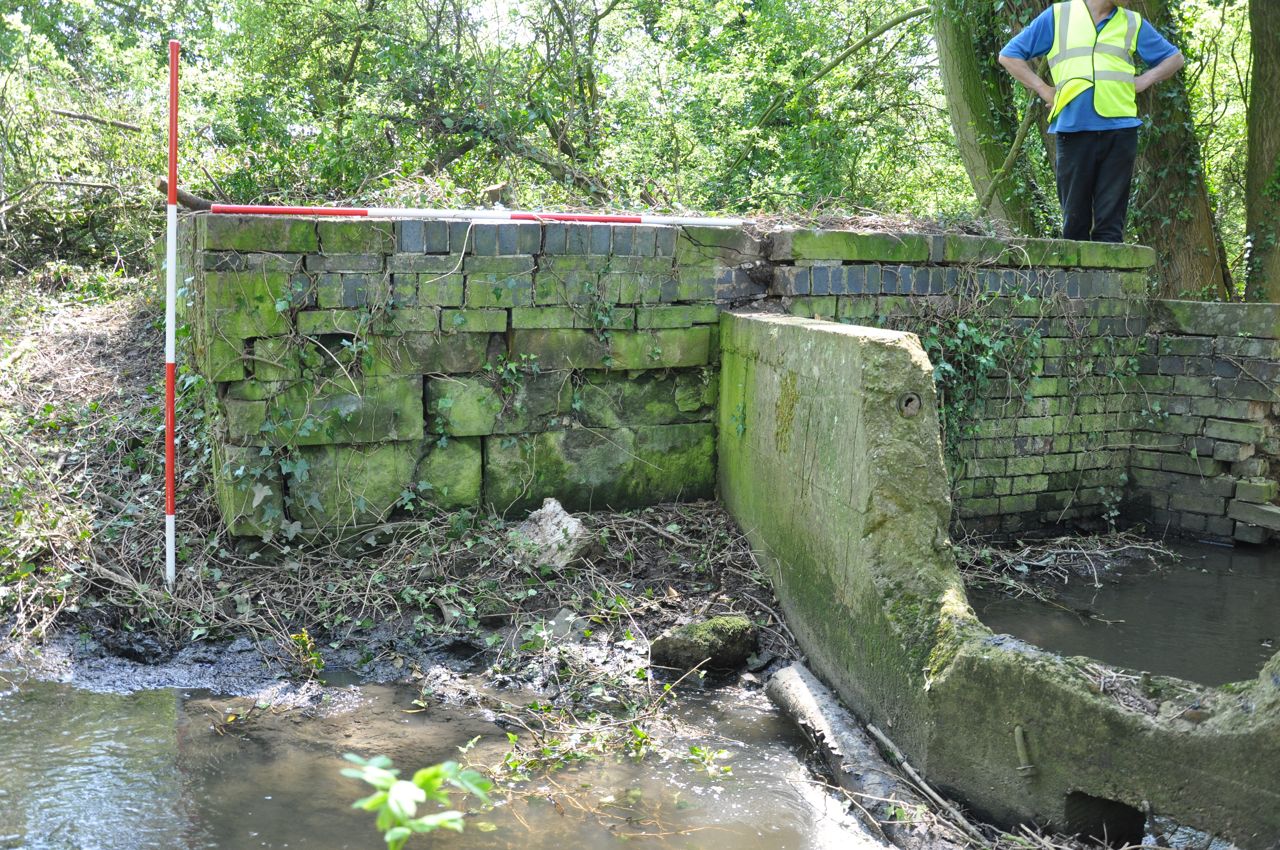
W pier of sheep wash looking SW Sheep wash and sluice looking N E pier of sluice view from W
As well as the expected arrangement of stone and brick piers at some point an additional gate had been erected just downstream so the water could held back to a sufficient depth to give a sheep a good soaking. The idea seems to have been to throw the animals in from the flat top of the east pier and after dunking them allow them to scrabble out at the far side where some fallen blocks had been recycled create a basic set of steps. The remains of the western pier of the sheep wash are in a particularly parlous state with the whole corner now propped up on a column just two bricks wide! Until I took a look at this end of the valley I was not really aware that there was a final triangular pool at this point, now more or less dry which marked the end of the 'serpentine river'.
All that's left to do now is measure and draw the very first sluice in the sequence, the one which is largely modern, but the nettles really have taken over now so I guess that will have to wait until the autumn.
We did have a fairly extensive series of plans for excavating at certain key sites round then park this summer but we have been largely defeated by the bad weather and the fact we are awaiting a derogation from Natural England in order to disturb some of the grass in Church Oakal. This work will now have to be done late in August then through into September. However, we were able to undertake an investigation of the amphitheatre and the interim report is available here.
Another highlught from June was the arrival of a small film unit from the Universtity of Leicester who wanted to do a promotional video for their M.A. by distance learning courses. It can be viewed here.

Again we seem to have a feature which originated in the mid-eighteenth century and was then repaired, modified and converted. The other strand to our investigations of the whole 'Serpentine River' arrangement was an epic piece of leveling when with the help of Peter Braybook we worked our way along its whole length reading off the levels then, as you can se below, plotting it all to scale so we can get some of idea of how the system worked. Although none of the original timber gates survived we were able to position them by assuming that the concrete replacements at sluices 4 and 5 were of a similar height which then also matched the base of the blue brick facings on the upstream elevation of the piers.

A couple of preliminary thoughts. It looks as if the cascade below sluice 4 was a particular design feature that one would expect to be able to view as the water level generated by sluice 5 comes up to its base. The arrangement with the two conduits under the bridge looks a little odd. Today there is a drop of just under half a metre on the outfall but if it is an original feature then in the eighteenth century these would be under water and the track way would have been just above water level. OK maybe that was the idea.
The fifth and final (hopefully) sluice proved the most complex of all:






W pier of sheep wash looking SW Sheep wash and sluice looking N E pier of sluice view from W
As well as the expected arrangement of stone and brick piers at some point an additional gate had been erected just downstream so the water could held back to a sufficient depth to give a sheep a good soaking. The idea seems to have been to throw the animals in from the flat top of the east pier and after dunking them allow them to scrabble out at the far side where some fallen blocks had been recycled create a basic set of steps. The remains of the western pier of the sheep wash are in a particularly parlous state with the whole corner now propped up on a column just two bricks wide! Until I took a look at this end of the valley I was not really aware that there was a final triangular pool at this point, now more or less dry which marked the end of the 'serpentine river'.
All that's left to do now is measure and draw the very first sluice in the sequence, the one which is largely modern, but the nettles really have taken over now so I guess that will have to wait until the autumn.
We did have a fairly extensive series of plans for excavating at certain key sites round then park this summer but we have been largely defeated by the bad weather and the fact we are awaiting a derogation from Natural England in order to disturb some of the grass in Church Oakal. This work will now have to be done late in August then through into September. However, we were able to undertake an investigation of the amphitheatre and the interim report is available here.
Another highlught from June was the arrival of a small film unit from the Universtity of Leicester who wanted to do a promotional video for their M.A. by distance learning courses. It can be viewed here.
